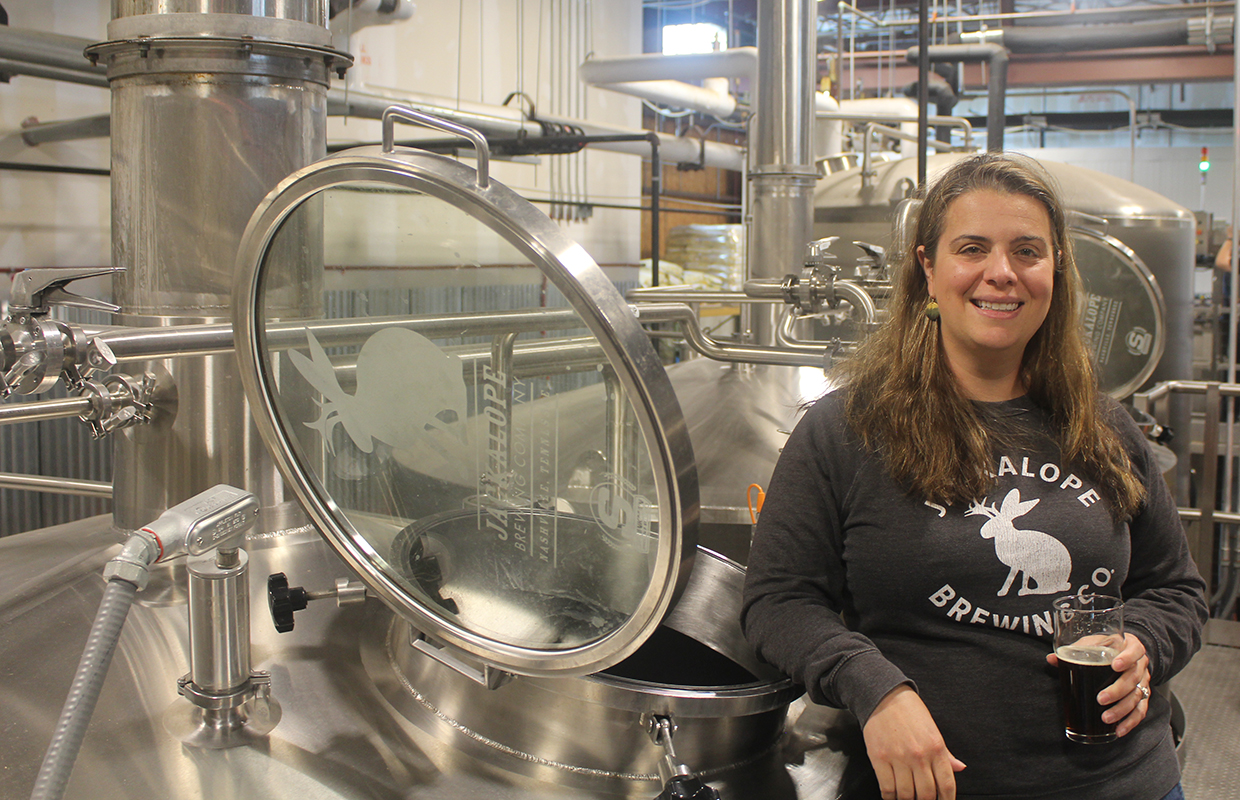
Although born and raised in Vermont, Bailey Spalding is a Nashvillian now.
“I’ve lived here for almost 16 years. I got married and had a baby here,” said the CEO and founder of Jackalope Brewing. “My family is from Nashville. People associate me with Nashville.“
Law school is what brought Spaulding to the Music City. Homebrewing, though, created a whole new reason to live and work there.
“I love the recipe and the brewing side and the tradition of it. I feel like when I homebrewed, I had one friend who I’d homebrew with, and we’d just learn so much,” she recalled from her days as a law school student at Vanderbilt. “Brewing itself is so much science, and it’s art. I think that really stuck with me. It was creative and scientific.”
Having a science background, Spaulding graduated from Harvard with a degree in Biological Anthropology.
“It was not like molecular bio or anything like that,” she said. “But I knew how to run a science experiment: Keep things clean and simple. And the idea of creating something repeatable was very familiar to me, and I love that. I was thinking about how you’d be creative and thinking about how you could make a difference in other people’s lives.”
The making a difference mantra is still a key part of why Jackalope does what it does now. Moving into a new spot in 2018 — the brewery which began in 2011 with Spaulding and business partner Robyn Virball, followed by adding in Steve Wright — immediately worked to connect with locals.
READ MORE: The Strategy Jackalope Uses to Build Up its Crew
“I thought I wanted to do environmental law but by the end of my first year, I was kind of like, ‘I don’t know about this,’” Spaulding recalled. “There are people who are doing great things and working on important projects. But you’re still just a lawyer and you’re kind of sitting at a desk and it’s a little less tangible.
“So with starting the brewery, if you can be a business that’s a good and positive part of your community and can be a good example, that’s the way I feel like I can make a positive difference in the community. I took matters into my own hands I guess.”
That meant organizing monthly litter cleanups in the neighborhood as one example.
“The third Sunday of every month, we do something called Pick Up for a Pint,” she explained. “People come to clean up trash for an hour. Then we separated it into compost, recyclable, and landfill and then they got a free beer. We work with a sustainability nonprofit. They do a lot of art projects and stuff and like education for kids about reuse and trying to minimize waste. They’re right down the street from us and it’s a fun way of kind of bringing the people who live here together. We try to do stuff like that.”
The brewery also pairs a different beer every month with a different local nonprofit.
“It’s a way to bring some awareness, and some funds as well,” she said. “I think we’ve raised about $100,000.”
Getting the business up and running and finding investors was a new realm for Spaulding, although craft beer was not. Raised in Vermont by entrepreneur parents and some early craft beer pioneers, Spaulding stopped at places like Otter Creek, Lawson’s Finest Liquids, and others to get a feel for what she wanted Jackalope to be.
“I got to kind of see something small to something much bigger and kind of learn from people just about some of their experiences,” she said.
“There just wasn’t a lot of beer here,” she recalled from her early days of moving to Nashville in 2006. “I’m from Vermont, where there’s a lot of beer. So it just felt like it (opening a brewery) would work.
“There’s so much local support, people love local businesses. They love the local — from all the music and the creative industries — they are really well supported here. So it just felt like we needed it and it would be a success and people drink a lot in Nashville too. It was a place that we knew could foster a really good craft beer environment. It just wasn’t here yet.”
Being a Vandy Law student, Spaulding said the Business School was next door and she took advantage of that.
“I’d go to the library’s business school and be like, ‘I’m working on a project about starting a brewery and the librarians would help me find things,’” she said with a laugh. “Actually one of the professors there knew I was not a student and helped us as well. He’s an entrepreneurship professor and helped us learn how to write a business plan. It was better than a Google search of: ‘What’s a business plan?’”
They ended up connecting with entrepreneur Debbie Gordon, CEO of Cloud Range.
“She taught us how to do potential investor meetings,” Spaulding said. “That was an interesting time.
“She said that people invest in breweries for the same reason they invest in things like a sports team. It’s an emotional investment. It’s not like a tech stock where they’re like, ‘I want a return on this very quickly.’ It’s more like, ‘I want to be able to tell people I’m an owner of this.’ If you present it to even a group of 40 people and one of them is interested in it, that’s a pretty good return.”
Spaulding said investors are still involved to this day and have helped the brewery open and then help make a move to the new facility seven years later.
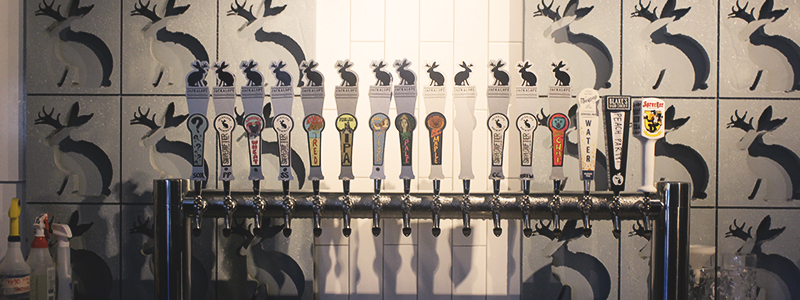
“We knew people were taking a leap on us and so we made it a pretty good kind of ownership structure for people,” she said. “When we were getting started, we had a lot of smaller investors. And so you didn’t feel like someone’s kid wasn’t going to college because you didn’t know what you were doing. So it did take a little bit of the pressure off that way.”
For the first three or four years, it was Spaulding and Wright running the brew deck and the books.
“Steve’s a friend who just kept showing up in the beginning so I taught him to brew and so he and I brewed all the beer,” she explained. “I wrote all the recipes in the beginning and I still write most of them or I help write most of them.“
The brewery quickly grew in the 3,000-square-foot brew space and Spaulding knew a new location would be needed.
“Our walk-in cooler was about 450 square feet and you couldn’t get a forklift into it,” she said with a laugh. “You’d get a pallet jack, and if you wanted to double stack, you had to do it all before you brought it in there. It was crazy. We would try to get beer kegged and on the trailer to the distributor without even having to hit the cooler. We were trying to time it that precisely by the end because it was so crowded in there.“
That smaller space helped Spaulding and Wright design what they call “The Ranch,” which has been the headquarters now since opening in 2018. Those early years paved the way to know what they wanted in a taproom and in the production area.
READ MORE: Are You Set Up to Make the Best of It?
“When we built this space, we wanted it to be a lot more professional,” she said while standing in the taproom and retail area, which was expansive, and included an outdoor space as well. “In our original brewery, we pulled down a fence to make the bar. Reclaimed barn wood and it was … very cozy. And that was very cool and I liked it. But we wanted this space to be a little bit more bright and colorful. I don’t need any reclaimed barn wood anywhere.”
The new space also allows more opportunities to play in the beer realm. With 110% capacity at the old space, just getting the cores made — including top-seller Bear Walker, a Maple Brown Ale — was of the most importance. Now with more taps and more space to ferment, the brewery is stretching its inventive mind.
“Just this morning, I was submitting our TTB formula for our first milkshake beer, which honestly, lactose is not generally my bag,” she said, “but we get to play around with those and have fun.
“I think what’s amazing is Bear Walker is still our best-selling beer. And it’s our Nashville distributor’s best-selling beer as well. So in an age of hazies, IPAs … all this stuff … to have a flagship be your Brown Ale? I think it’s pretty unique right now.”
One of the things that the pandemic afforded Jackalope, Spaulding said, was the ability to figure out how to work some smaller brews into the process.
“We hadn’t been able to do that. And then we moved over here, we had the bigger capacity, then all of a sudden 65% of our business went away,” she said, indicating draft sales. “Luckily, we had our own canning line (which started in 2013). So that made up a decent amount of the difference. But we suddenly had time to kind of play around a little bit more.”
Competing in the market is important though and those draft sales have rebounded a bit, getting the brewery closer to a 50-50 split of package to draft sales now. Featuring four year-rounds and two what Spaulding called “Super Seasonals,” those six take up a bulk of product sales while the pandemic gave birth to a line of smaller seasonals as well. Upwards of 20 or so SKUs are now a part of the lineup.
“We’re working and putting some structure around them so that distribution can handle it is kind of what we’re doing this year,” she said.
But she admits that consumers’ behaviors have definitely changed for a long period and the brewery now has to shift along with them.
“We’re not trying to put a square peg into a round hole, we just want to kind of continue growth and figure out how that will go,” Spaulding said. “Our packaged beer sales haven’t fallen. We’re just also growing.”
The word growth may mean something different than it did 11 years ago when she was planning and opening the brewery. Taking care of over-the-bar sales is key, but finding a distributor partner that will care about you matters as well.
“When we first started, distributors just wanted craft beer. They just wanted to get whatever craft brewery they could,” she said. “Now — maybe it’s for the better, I don’t know — you really have to prove why they should carry you. And if you’re going to be one of 50 brands that they have, why is your brand going to be successful?
“Having that partnership, knowing that everybody’s kind of overextended and maxed out. I think it’s kind of a new way to do it.”
The larger facility means more opportunities to welcome both Nashville locals and tourists to the area, which means a better profit margin per beer as well. While many breweries from outside of Nashville have looked into adding taprooms to the area, Spaulding said she is happy with the whole business under one roof for now.
“I’m a never-say-never type of person but that is not in our immediate playbook,” she said of opening a second location, even locally. “We had about a year where we had both taprooms open. … I personally didn’t like having multiple taprooms. It just felt like our little family was separated. I like having everybody under one roof.
“We just feel like we have plenty of growth that we can do here and this neighborhood is like just starting to come alive. The soccer stadium just opened. There are more and more businesses just opening in our neighborhood. So we just want to soak that up.”

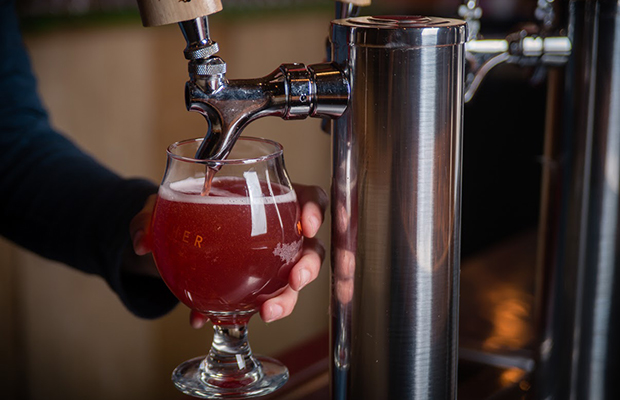
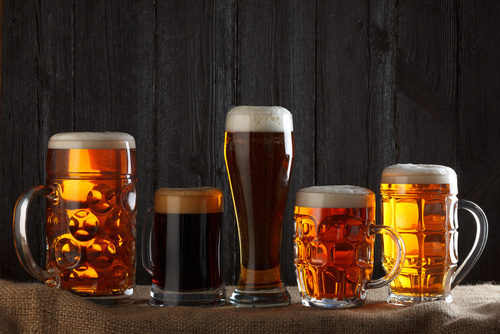
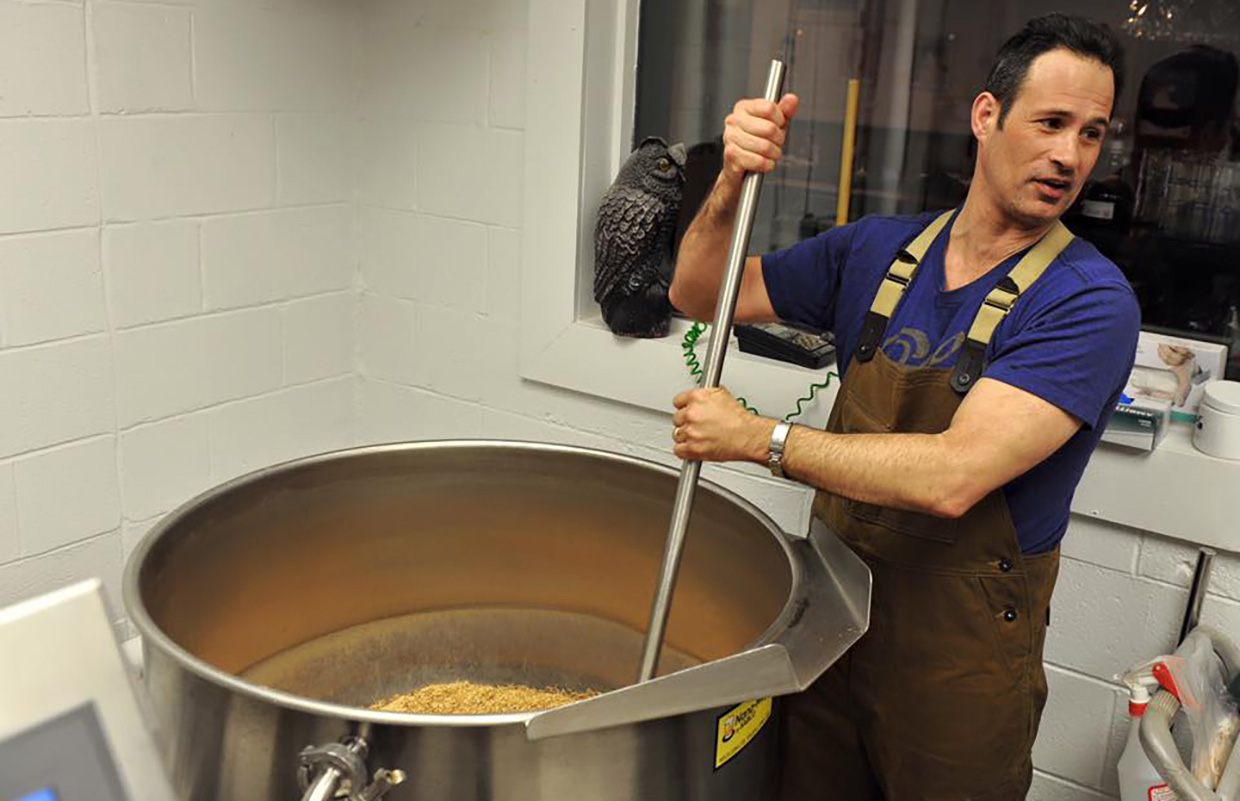
Be the first to comment